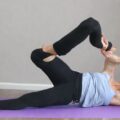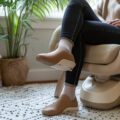Having high arches can make finding comfortable, supportive footwear a challenge. However, the right pair of shoes can make all the difference in providing relief and preventing foot pain. In this article, we’ll explore the best shoes for those with high arches as recommended by podiatrists. Whether you’re looking for everyday wear or athletic performance, we’ve got you covered.
Why Footwear Matters for High Arches
Individuals with high arches often require shoes with extra support to avoid strain and overuse injuries. High arches can lead to a condition known as supination, where the feet roll outwards during walking or running, leading to potential discomfort and instability. The right shoes can provide the necessary support and cushioning to maintain proper foot alignment and comfort.
Features to Look for in Shoes for High Arches
- Arch Support: Shoes with built-in arch support help distribute pressure evenly across your feet.
- Cushioning: Adequate cushioning in the heel and forefoot aids in shock absorption.
- Flexibility: A flexible midsole allows for a natural range of motion.
- Stability: Features that enhance stability prevent the foot from rolling outward.
Top Picks for Everyday Footwear
For daily wear, podiatrists often recommend shoes that offer a balance of comfort and support. Brands like Brooks, Asics, and New Balance are known for their high-quality, arch-friendly designs. Look for models with a firm midsole and a well-contoured insole to help manage foot positioning throughout the day.
Best Athletic Shoes for High Arches
When it comes to athletic shoes, it’s important to choose a pair that caters to your specific activity. Running shoes should have a good amount of cushioning to absorb impact, while cross-trainers should offer lateral support for a variety of movements. Some of the top recommended brands for high-arched athletes include Saucony, Nike, and Hoka One One.
How to Ensure the Perfect Fit
Even the best shoes won’t help if they don’t fit properly. Make sure to:
- Measure your feet regularly, as foot size can change over time.
- Try on shoes in the afternoon, when feet are typically at their largest.
- Wear the socks you plan to use with the shoes during fitting.
- Walk around in the shoes to ensure there’s no pinching or slippage.
FAQs
How do I know if I have high arches?
You can perform a simple wet test at home. Wet your feet and step onto a flat surface that will show your footprint. If there’s a noticeable gap in the inner part of your footprint, you likely have high arches.
Can high arches lead to other foot problems?
Yes, high arches can contribute to conditions like plantar fasciitis, shin splints, and ankle instability. Proper footwear can help mitigate these risks.
Is it better to buy shoes specifically designed for high arches?
While it’s not always necessary to buy shoes marketed for high arches, it is crucial to select footwear with the appropriate support and cushioning features.
How often should I replace my shoes?
Athletic shoes should generally be replaced every 300-500 miles, depending on usage and signs of wear. Everyday shoes should be replaced when they no longer provide adequate support.
Can insoles or orthotics help with high arches?
Yes, custom orthotics or over-the-counter insoles designed for high arches can enhance the comfort and support of your shoes.









